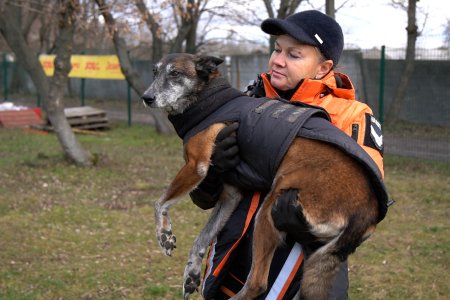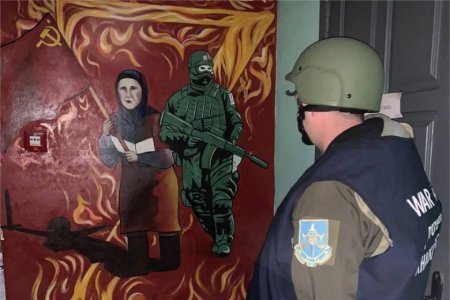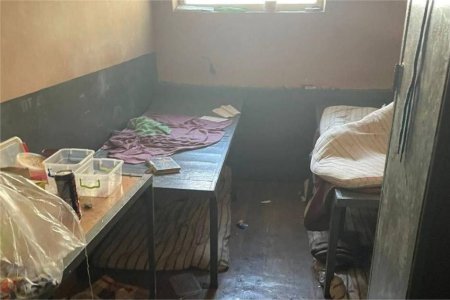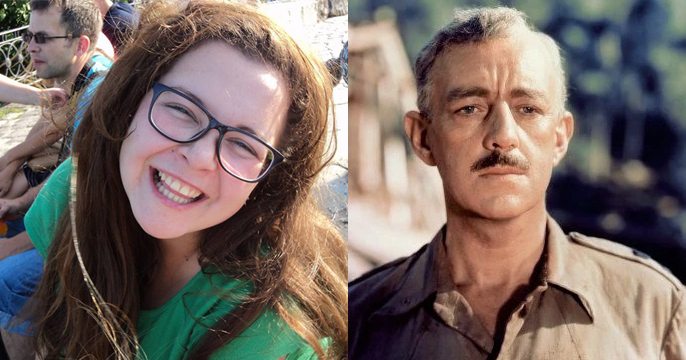
“The Geneva Convention expressly prohibits officers’ involvement in physical labor.” So says Alec Guinness’s character in “The Bridge on the River Kwai”. Katerina Skopina, who had fallen into Russian captivity, said almost the same.
Recently, there was the seventieth anniversary of the Norilsk uprising, organized by Ukrainian political prisoners. After 70 years, Ukrainians continue to be in captivity at the direction of Moscow as in the days of the gulags, and they demonstrate exceptional courage in the most challenging conditions of the modern Russian detention centers.
In Ukraine, “The Bridge over the Kwai” of 1957 is not a very well-known film, which, however, is considered one of the best examples of world cinema. Events unfold in a Japanese prisoner-of-war camp in Thailand, where the head of the camp, Colonel Saito, orders everyone to build a bridge. The commander of the British contingent, Nicholson, refuses to send his officers to work: he begins to read the Geneva Convention, standing in front of Colonel Saito, which makes the latter pretty angry.
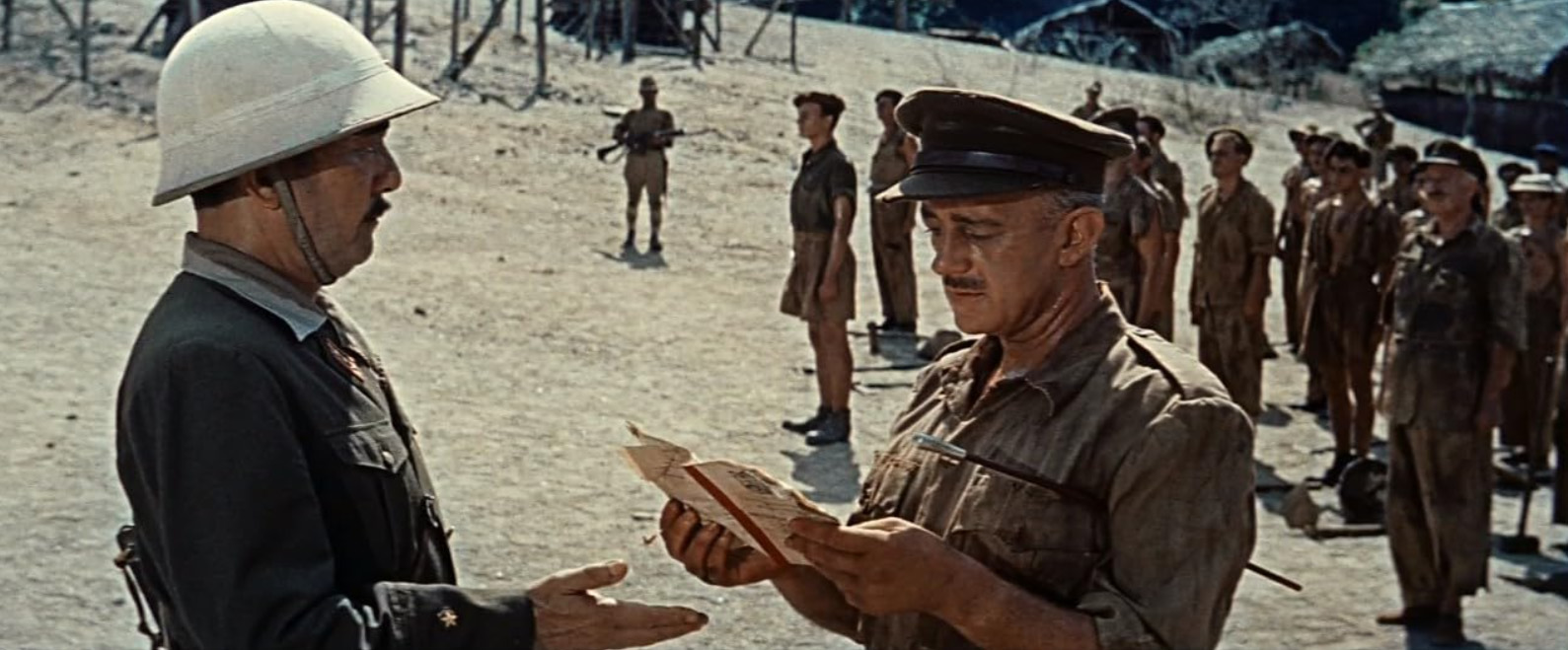
In the end, Nicholson is punished by being kept in a pit, where he almost dies of exhaustion, defending his adherence to international law.
Unlike Colonel Nicholson, Senior Lieutenant Skopina is a real person. She was deputy commander of a military hospital in Mariupol when Russia launched its offensive against the city in February 2022. During an unsuccessful march, along with the Marines, she was captured.
The Geneva Conventions do not consider medical personnel prisoners of war, even if they were armed at the time of capture. Believing in international norms, Katerina Skopina was convinced that her subordinates and herself should be released. However, the Russians did not even give them the opportunity to protest, immediately taking away their certificates, without which it was impossible to prove their status. So, for Katerina and her colleagues, the time of cruel Russian captivity began: first in the notorious colony in Olenivka and then in Russian prisons and isolation wards.
It must be admitted that people who claim to be able to read a person’s fate by hand sometimes enjoy popular support. There is an opinion among the Russian military that each of them is endowed with a similar gift to determine the unit in which a person serves by the marks on their hands.
Guided by this mystical instinct, first, they ranked Mrs. Skopina among the snipers. Subsequently, during interrogations, she and others were forced to confess to carrying out no less mythical “circumcisions” in their hospital. Ironically, a confession of alleged torture was being forced out by the Russian military and KGB using, in fact, torture — such that it is difficult even for Russian propaganda to come up with.
I thought that Olenivka was the worst
In addition to regular beatings and electric shocks, Katerina also describes how the Russians imitated the hanging of prisoners. The woman was put on a chair (considering the physical exertion, standing on two legs was already difficult) and forced to throw a rope around her neck. Then, they began to push the chair, expecting the one watching not to be able to stand it and start talking. When Katerina was forced to watch this, she attacked the guards, demanding they stop doing this to her colleague. “What are you doing?! Remove Viktoriia Serhiivna! What kind of circumcision?! The hardest thing she can do is pull out a tooth.”
Immediately after this, another method of torture began — a person was forced to bend over a red-hot furnace. “My glasses were deformed from this, and now they are falling off,” — said Katerina.
Katerina Skopina spent only five days in the colony in Olenivka, but during that time, she saw, together with other women, how men were being tormented.
“Dogs bit our soldiers to death. The impression was that the dogs were trained using our guys. And it was all staged for us to see: there were two buses with women. There were 82 women. These buses were placed in front of the entrance, making a so-called corridor: the men were tied up, ran, and beaten with rubber truncheons. Some of these batons cracked the skin on their heads.”
What exactly happened on 29 July 2022 in this village near Donetsk, where more than 50 Ukrainian soldiers died in captivity in one day? Katerina could not see this because she was already kept in a colony in Russia at that time. On TV, she was told the Ukrainians attacked their fighters using HIMARS. However, Katerina had a different version: several women who were in Olenivka at the time of the explosion ended up in her colony. They said that immediately after the tragedy, there were cadaver spots on the bodies of the dead, which could not form in such a short time after the explosion. In addition, Katerina herself recalls the sounds of the work of Russian artillery directly on the territory of the colony.
We are talking with Katerina precisely one year after the massacre in Olenivka. The National Police released a blurred photo of a “junior inspector” suspected of torture. Katerina recognizes him by the tattoos on his arms. It was this man — an ethnic Ukrainian working for the Russian occupiers — who tried to force her to peel potatoes, and when she refused, he hit the medic on the head.
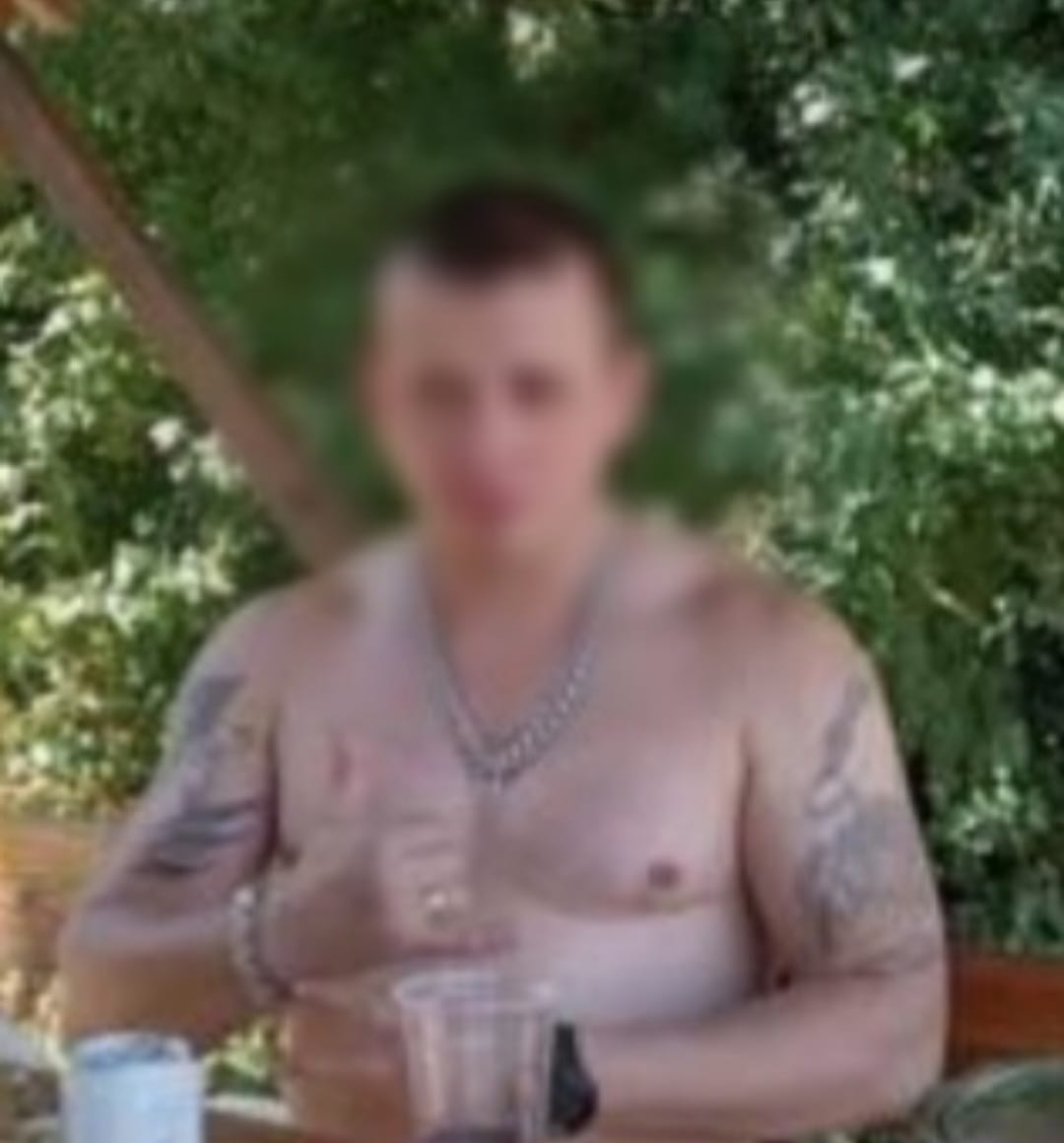
Remembering Colonel Nicholson, we must admit there is a difference between him and Skopina. Citing the Geneva Convention, Nicholson remains restrained, and Skopina says that she could not refer to it without curse words, so she had to ask other girls to do it in a less aggressive form.
Katerina was forced to peel potatoes but refused to do any other work. She was especially angered by the order to sew Russian uniforms alongside those convicted of criminal offenses. The Russians had to come to terms with this. They put her in solitary confinement, but not for that.
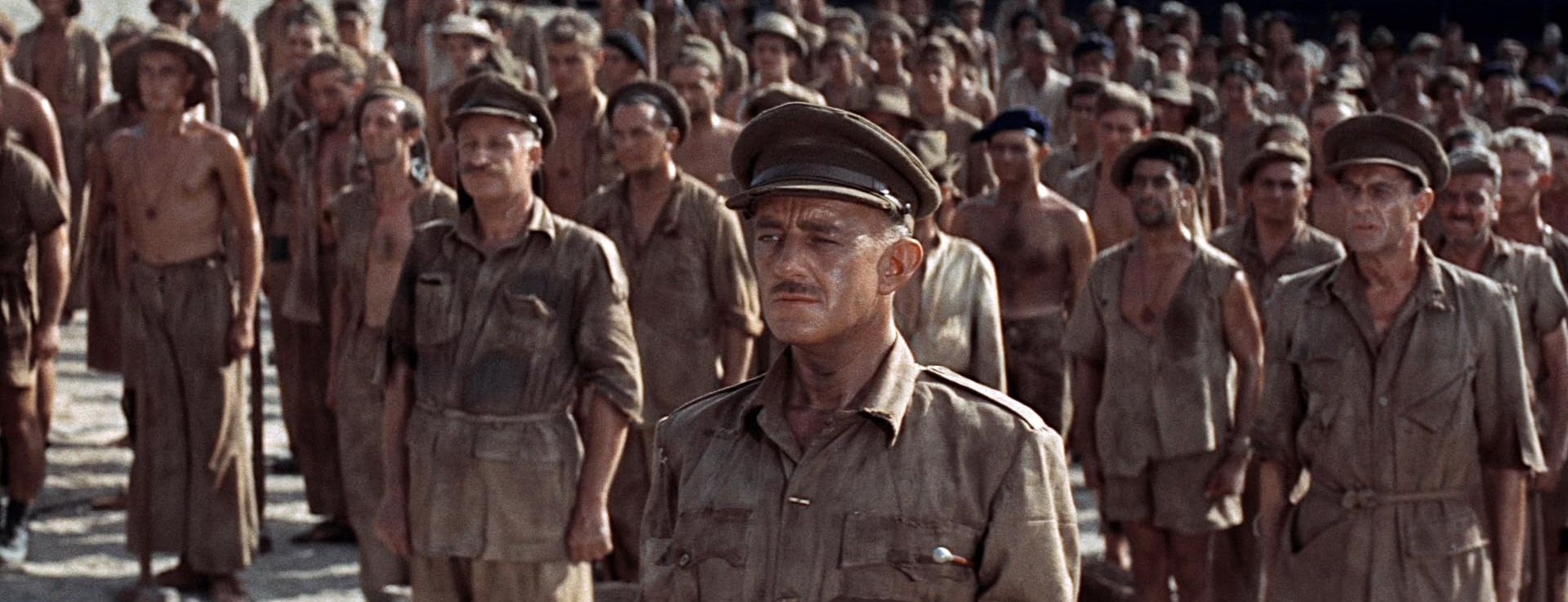
Hunger strike and conversation with the Prosecutor General
After Olenivka, there was the Tahanroh pre-trial detention center, where the torture only intensified. In a penal colony in the village of Valuiky in the Bielhorod Region of Russia, women were electrocuted while they tried to run to the toilet. Ukrainian women lost consciousness from overwork.
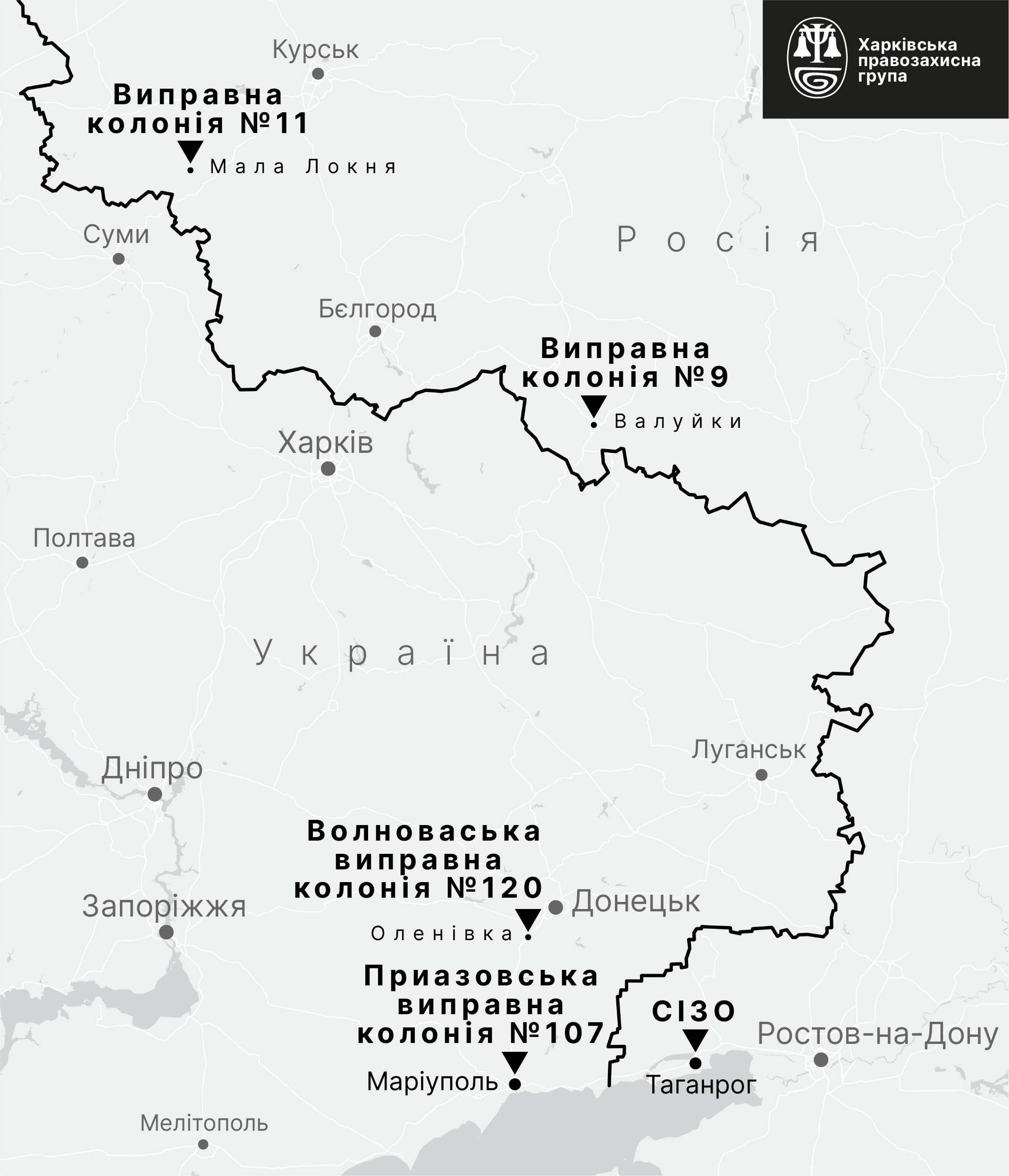
Katerina began to organize a riot in the form of a hunger strike. She convinced other military to join her; even a woman with anorexia joined. Katerina was betrayed, and the administration isolated her.
One day, the General Prosecutor of Russia accidentally visited the colony. Usually, such visits do not bring any result: under the fear of severe torture, prisoners rarely complain during checks. We know this well from the Ukrainian colonies. However, unexpectedly for everyone, Katerina Skopina was able to talk with the Prosecutor General and told him everything as it was. It worked, and subsequently, the conditions in the colony softened — women were no longer tortured so aggressively.
In general, the fortitude of Ukrainian military women is impressive: out of 82 prisoners, about ten cooperated with the invaders after unbearable torture, but none of Katerina’s units, which the medic is very proud of, just as she is proud of the female marines of the 36th Brigade, who also proved to be worthy. “The most important thing is not to lose dignity and always remain a human,” — the officer says, recalling with contempt those who could not cope. Ironically, the five women who accepted Russian passports are still in Olenivka, although others have been gradually exchanged.
Katerina Skopina rules for life in captivity
- Accept that your body no longer belongs to you and nothing can be done about it.
- Do not succumb to provocations. Asking for mercy will make the executioner feel superior and only increase the suffering.
- Support each other.
- Believe in your country and that you will be exchanged.
When cinema loses to reality
Since returning to Ukraine at the end of 2022, Senior Lieutenant Skopina has given numerous interviews. After a long separation, her family united: the Russians exchanged her husband Igor, who served in the 503rd Marine Battalion and was taken prisoner with his wife. Finally, after complex and lengthy negotiations, their daughter Anna-Mariia was released from Mariupol. The pro-Russian parents of Katerina’s husband and the occupying authorities did not want to give her away for a long time. They even tried to issue a Russian passport to the child.
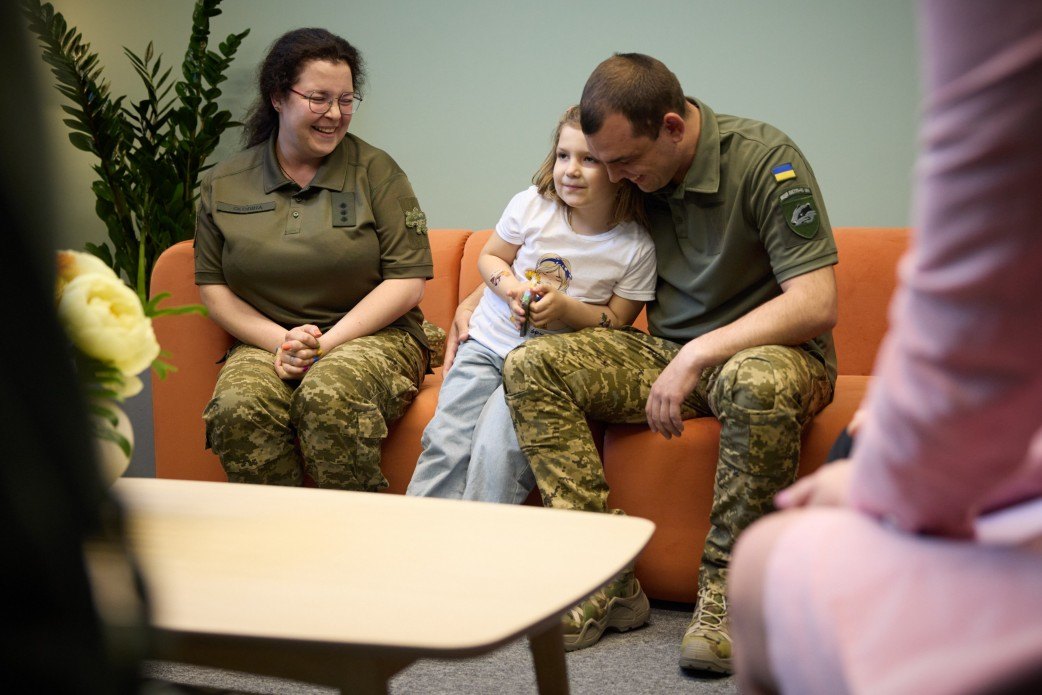
The work of the military hospital in Mariupol, where Katerina served, deserves a separate story. In May last year, we talked with one of its wards, who was evacuated by helicopter directly from the encircled Azovstal — another incredible feat of the Ukrainian army and military intelligence.
The example of Katerina Skopina and her colleagues proves again that evil does not deserve any compromises. Any deal with evil ends in failure. Evil can be resisted, even when it is in full power. For centuries, the Muscovite empire tried to destroy the identity of Ukrainians by appropriating culture and erasing language and simply by physically executing and torturing millions of people. However, stamina is something unique that distinguishes the Ukrainian people: Ukrainians have not disappeared. They have preserved their language and culture and still courageously oppose Russia, as their ancestors did at different times.
Now, both Katerina’s husband Ihor and Skopina herself continue their service. Ekaterina says that this helps her psychologically after everything she has experienced. “I think, if I come to a psychologist, he will have to attend psychologist himself after me."
“Bridge over the River Kwai”, although it has some connection with actual historical events, is generally artistic fiction. Like most Ukrainians, Katerina Skopina has not seen this movie, which makes her story even more remarkable: she applied the script to real life, guided by internal moral laws.

